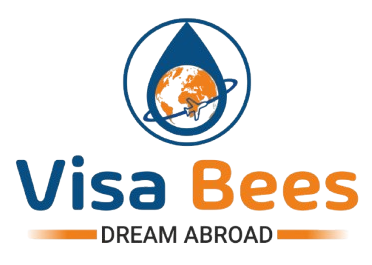🕒Mon – Fri: 9:00 am – 05.00pm

Job seeker FAQs
FAQs for Job Seeker
What is Germany’s Opportunity Card, and how does it work?
The Opportunity Card (Chancenkarte) is Germany’s updated approach to attract skilled workers. Key features include:
- Points-Based System: Points are awarded for age, education, work experience, and language skills.
- Eligibility: No job offer required initially. Applicants need proof of qualifications and financial stability.
- Duration: Valid for up to 1 year to search for a job in Germany.
What are the requirements for Austria’s Red-White-Red Card Job Seeker Visa?
Austria’s Job Seeker Visa targets highly skilled professionals. Key requirements:
- Points-Based Criteria: Points are awarded based on education, experience, language skills, and age.
- Eligibility: You must achieve a minimum score (usually 70 out of 100 points).
- Duration: Allows up to 6 months to find employment.
- Language Proficiency: German or English skills can boost your points.
What is Portugal’s Job Seeker Visa?
Portugal’s Job Seeker Visa allows skilled workers to enter the country without a job offer. Key details:
- Eligibility: Proof of qualifications and financial means to support your stay.
- Duration: Valid for 120 days, with the possibility of a 60-day extension.
- Conversion: Once employed, the visa can be converted to a residency permit.
Can I move to Europe without a job offer?
Yes, European Job Seeker visas and skilled migration programs allow applicants to relocate without a job offer:
- Germany: The Opportunity Card.
- Austria: Red-White-Red Card Job Seeker Visa.
- Portugal: Job Seeker Visa.
These programs provide time to search for employment while living in the country.
What industries in Europe are in high demand for skilled professionals?
Europe faces labor shortages in various industries, particularly:
- Technology and IT: Software developers, AI specialists, and data analysts.
- Healthcare: Nurses, doctors, and allied health workers.
- Engineering: Civil, mechanical, and electrical engineers.
- Green Energy: Renewable energy professionals and climate scientists.
- Construction and Trades: Electricians, plumbers, and carpenters.
How does the points-based system work for European Job Seeker visas?
The points-based system evaluates candidates based on:
- Education: Higher qualifications score more points.
- Work Experience: Experience in high-demand fields is advantageous.
- Language Proficiency: Proficiency in English, German, or Portuguese improves scores.
- Age: Younger applicants receive higher points.
Countries like Germany and Austria prioritize candidates based on this system.
Do European Job Seeker visas include family members?
Most Job Seeker visas, such as Germany’s Opportunity Card, do not allow dependents to join immediately. However, after securing a job and converting your visa to a residency permit, family reunification options become available.
What documents are required for European Job Seeker visas?
Commonly required documents include:
- Passport
- Proof of Education: Degree certificates and transcripts.
- Work Experience Proof: Employer letters or contracts.
- Language Proficiency Test Results
- Financial Means: Evidence you can support yourself during your stay.
- Health Insurance: Coverage valid in the Schengen Area.
Are Job Seeker visas a guaranteed pathway to permanent residency?
Not directly. To gain permanent residency, you must:
- Secure a job during your Job Seeker visa validity period.
- Convert your visa to a work permit or residence permit.
- Meet the residency requirements for permanent status, which vary by country.
For example:
- Germany: Permanent residency can be achieved after 33 months (or 21 months with advanced German language skills).
Portugal: Residency permits can lead to permanent residency after 5 years.
